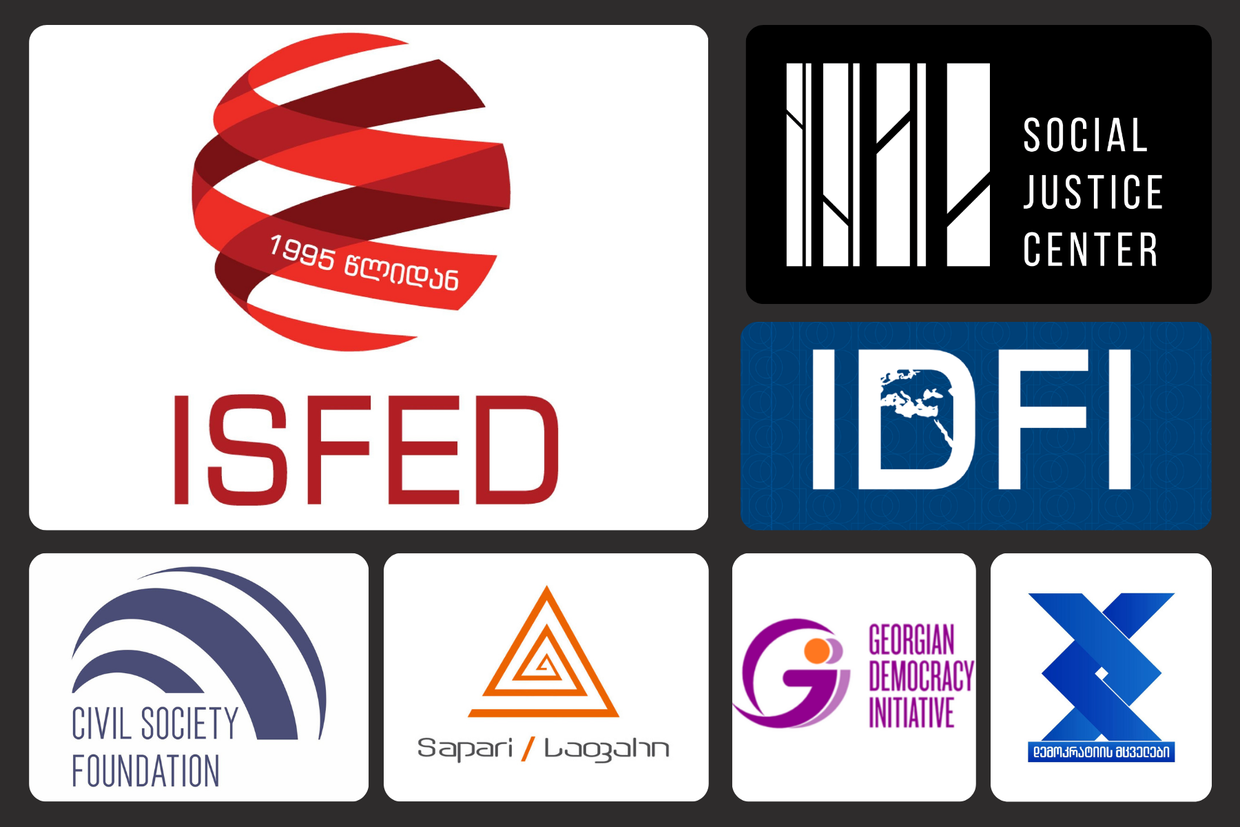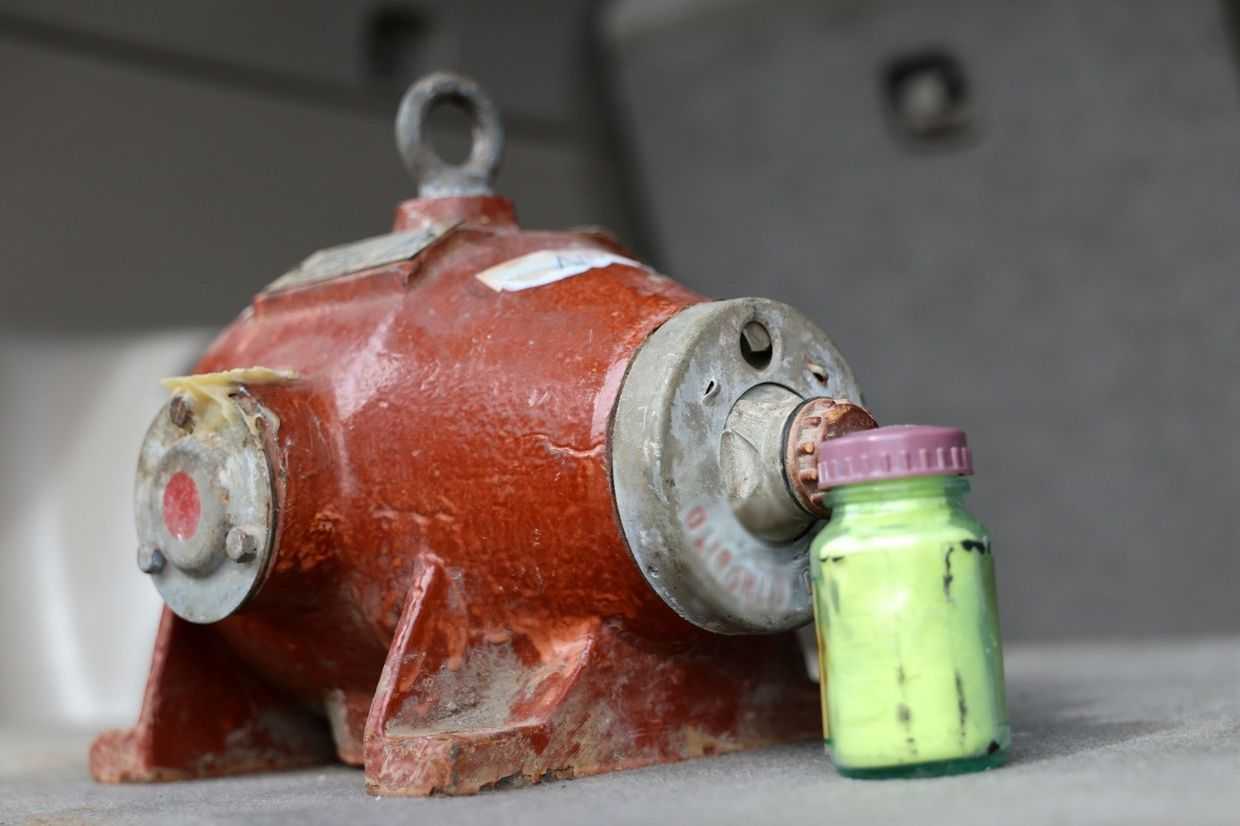
Seven Georgian civil society organisations, whose bank accounts were frozen at the request of the Prosecutor General, have said they will continue their work. Critics condemned the freeze as anti-democratic, warning it could further endanger Georgia’s visa-free travel with the EU, already at risk due to the ruling Georgian Dream party’s policies.
At a joint briefing on Wednesday, the groups targeted by the Prosecutor General described the freeze as ‘another illegality that violates fundamental human rights and serves to sabotage the process of EU integration’.
‘We will not stop our work. Despite freezes, repression, or threats, we will stubbornly continue our efforts as long as the Georgian people fight daily for justice and fairness’, the statement read.
Tbilisi City Court approved the freeze just hours before the briefing. The prosecution requested the punitive measure as part of an investigation accusing various civil society organisations of facilitating violence during the early stages of ongoing anti-government protests.
Among those targeted are leading civil society groups, including the International Society for Fair Elections and Democracy (ISFED), the Civil Society Foundation, the Institute for Development of Freedom of Information (IDFI), the Social Justice Centre (SJC), and Sapari. The accounts of the Georgian Democratic Initiative (GDI) and Democracy Defenders were also frozen.
In their justification for the freeze, the Prosecutor General’s Office stated that protest participants were equipped with various items, including ‘special gas masks, helmets, face-covering masks, respirators, protective goggles, and batons’. According to the agency, they were being supplied in a ‘coordinated manner’ using funds from the aforementioned organisations.
‘The illegal ruling contains no factual justification. The judge made the decision solely based on standard template citations’, the organisations said in response.
They called the authorities ‘the enemies of the Georgian people’, who sought to prevent civil society from defending the rights of vulnerable groups, including children, women, people with disabilities, workers, and the elderly.
‘They want to stop us from investigating and reporting injustice, corruption, torture, and systemic violence’, they said.
The organisations said they will use all legal mechanisms ‘to prevent those opposing the country’s democratic and European path from achieving their goals, as guaranteed by the constitution’.
Visa-free travel with EU under threat
On Thursday, more than 50 civil society organisations expressed ‘full solidarity’ with those targeted by the freeze.
In their statement, the signatories condemned the court’s decision and stressed that ‘the [Georgian Dream founder Bidzina] Ivanishvili government, through such actions, once again shows the EU that maintaining Georgia’s visa-free regime is not in their interests’.
Other critics of the ruling Georgian Dream party also raised the issue of visa-free travel with the EU when condemning the freeze decision.
In July, the European Commission sent a series of letters to the Georgian government warning that visa-free access to the bloc for Georgians, in place since 2017, could be suspended unless the country fulfilled key democratic reforms. The commission gave Georgia until 31 August to report on its progress implementing said recommendations.
However, as government opponents repeatedly stated, instead of implementing the recommendations, the ruling party has been deepening the democratic backsliding, increasing the risk of losing visa-free travel with the EU and further isolating the country.
‘The threat of losing visa liberalisation is real for our country, because Georgian Dream is doing the exact opposite of our partners’ recommendations’, Tazo Datunashvili, head of the opposition group Lelo — Strong Georgia’s election campaign, said at a Wednesday briefing.
Elene Khoshtaria, one of the leaders of the opposition group the Coalition for Change, said the freeze ‘is a targeted move in the Russian style — a deliberate step to make us lose visa-free travel and never have a European perspective again’.
According to Khoshtaria, the freeze was the state’s response to the ‘relentless struggle’ carried out by civil society organisations in the country’s interest. She called on citizens to join the anti-government protest on 13 September, announced by eight opposition parties.
Leaders of the ruling party have denied any responsibility for the possible suspension of visa-free travel, describing the European Commission’s warnings to Georgia as ‘blackmail’.
In a continuation of the EU’s potential revocation of its visa liberalisation act, Tbilisi Mayor Kakha Kaladze said on Tuesday that the country’s ‘state and national interests cannot be traded for visa liberalisation’.
Part of a broader investigation
The targeting of the civil society groups is part of a broader case involving charges of sabotage, attempted sabotage, and aiding and abetting hostile activities. The investigation was initiated in February, following a request submitted by a pro-government group, and has affected a wide spectrum of government critics.
The criminal charges on which the investigation is based carry long prison sentences.
This is not the first time the Prosecutor General’s Office has targeted the ongoing anti-government protests through investigations into alleged sabotage.
In March, the agency froze the accounts of five funding sources that had supported participants of the demonstrations who were fined or detained. Later, searches were conducted at the homes of individuals associated with the funds.
The Georgian government’s policy toward civil society organisations has become particularly hostile over the past two years, alongside its adoption of a series of restrictive laws.
The adoption of these laws has accelerated over the past eight months, against the backdrop of anti-government demonstrations, the first phase of which saw heavy clashes and brutal police violence against protesters and journalists.
Of the seven NGOs whose accounts were frozen, four — ISFED, SJC, Sapari, and the Civil Society Foundation — had already been singled out under the ruling party’s Foreign Agents Registration Act (FARA). The Anti-Corruption Bureau launched inspections of these groups, along with three others, in mid-August, citing possible violations of FARA.
Georgian Dream has repeatedly claimed that these measures were necessary to fight the ‘influence of external powers’. Nonetheless, critics of the ruling party have insisted that the state actions aim to undermine the media and civil society in an already fragile democracy.












